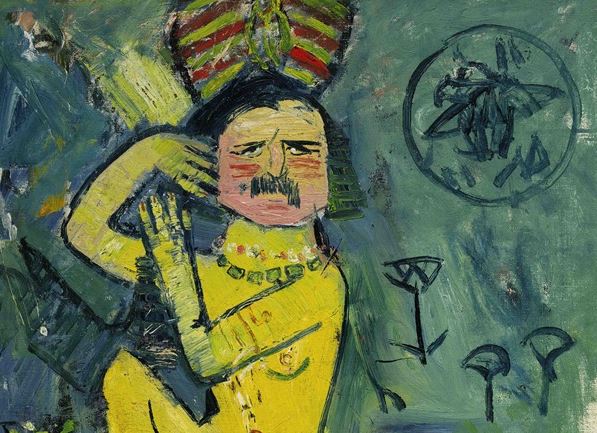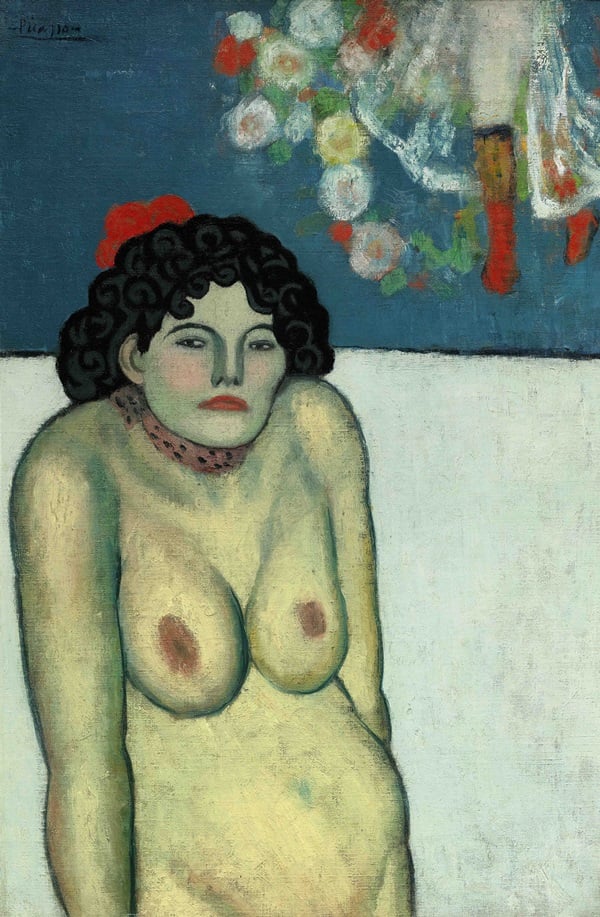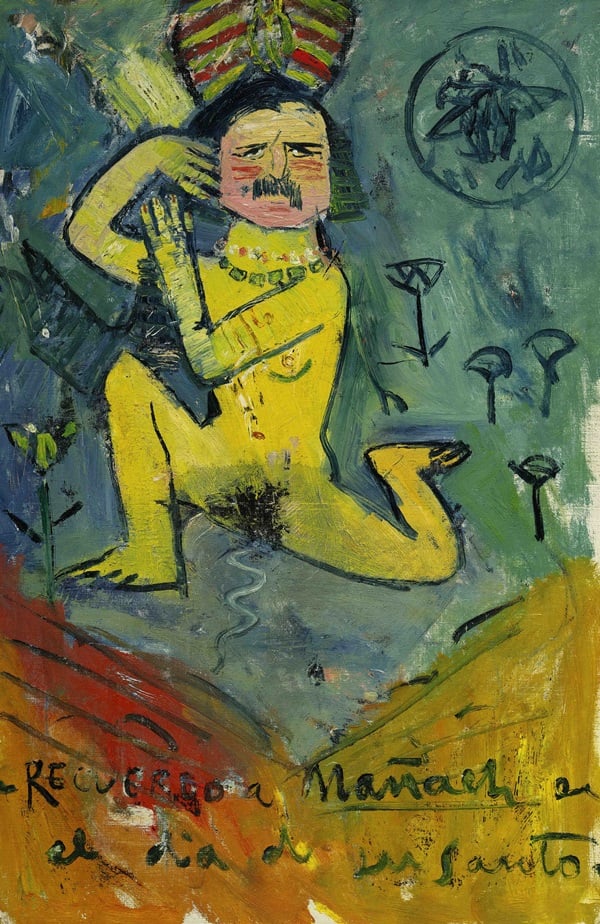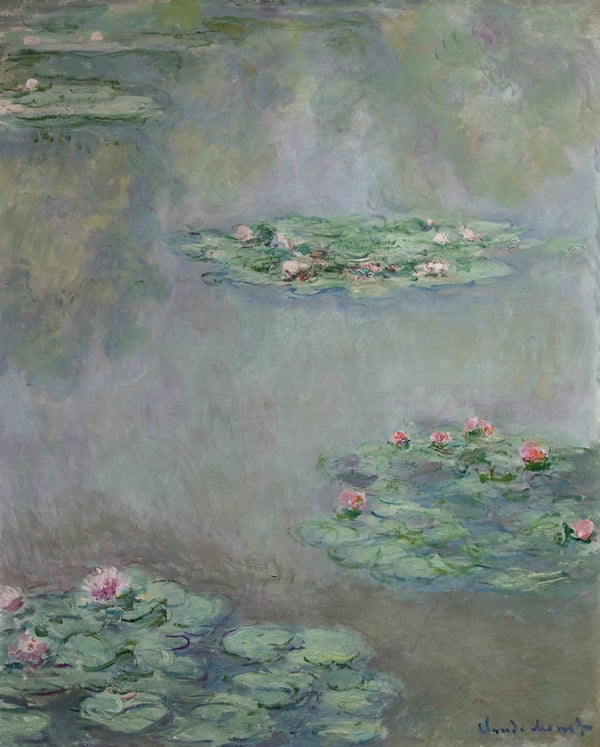Analysis
Conservation Reveals Secret Painting On Back of $60 Million Picasso Is of the Artist’s Anarchist Friend
Koch discovered the secret during a conversation project.

Image: Courtesy of Sotheby's.
Koch discovered the secret during a conversation project.

Eileen Kinsella


Pablo Picasso La Gommeuse (1901).
Image: Courtesy of Sotheby’s.
Sotheby’s has announced the consignment of two major works from the collection of renowned art and wine collector William Koch for its upcoming fall evening sales of Impressionist and modern art in New York on November 5.
One of the coveted works is a Claude Monet Nymphéas painting from the artist’s celebrated Giverny series with an estimate of $30 million to $50 million. But the real stunner is a rare Pablo Picasso blue period portrait, La Gommeuse, that was painted when the artist was 19 years old. This 1901 painting came after the suicide of one of Picasso’s close friends, Carlos Casagema, earlier that year.
Picasso created the painting after his much-lauded exhibition at Ambroise Vollard’s gallery. At the time, he was sharing an apartment with his Catalan anarchist friend Pere Mañach. According to Sotheby’s, “the two young men immersed themselves in the debauchery of the Parisian demi-monde. This dizzying mixture of professional success and personal tragedy brought Picasso’s creative genius to a climax.” La Gommeuse is thus “portrayed in an absinthian haze of sexual ennui: she is both temptation and downfall incarnate.”

The long hidden painting of Picasso’s friend Pere Mañach.
Image: Courtesy of Sotheby’s.
Even more fascinating is that the back of the painting adds a curious new layer to the story. When Koch began conservation efforts in 2000, a crass rendering of Mañach appeared; his face is flush and his body is a sickly yellow color, as he appears to urinate on the canvas.
According to Sotheby’s, scholarship suggests Picasso was frustrated with Mañach’s professional dealings and “this outrageous portrait encapsulates their tumultuous friendship.” It is inscribed “Recuerdo a Mañach en el día de su santo” (I remember Mañach on his Saint’s Day), which suggests that Picasso gave La Gommeuse to his friend on June 29, with the scene serving as his “personal version of a boisterous birthday card.”
Koch, aware of the unique history and insight into the artist’s life offered by the hidden painting, constructed a custom display in his home so that both images could be viewed from opposite sides of the same wall. The unpublished estimate on the work is “in the region of $60 million.”
Recent scholarship on the work suggests that Vollard acquired it sometime after 1906, and possibly lined it in order to “keep the work as commercial as possible,” a representative at Sotheby’s told artnet News in an email. It was later owned by 1930s Hollywood film director Josef von Sternberg.
The history of the work at auction also provides insight into the status of the Picasso market over the years. The upcoming sale marks the fourth time Sotheby’s has handled the work at auction.
Sternberg first sold the picture in 1949, at Parke-Bernet (Sotheby’s predecessor) in 1949 for $3,600. It was later acquired by Jacques Sarlie, a Dutch-born financier based in New York who had acquired a large Picasso collection that featured work from every major period.
It was again offered for sale in 1984 at Sotheby’s London, where Koch acquired it for £1.4 million.

Claude Monet Nymphéas (circa 1908) is estimated at $30 million to $50 million.
Image :Courtesy of Sotheby’s.
The works will be on view at Sotheby’s London (October 10–15) and then in New York (October 30–November 5), ahead of the evening auction on November 11.